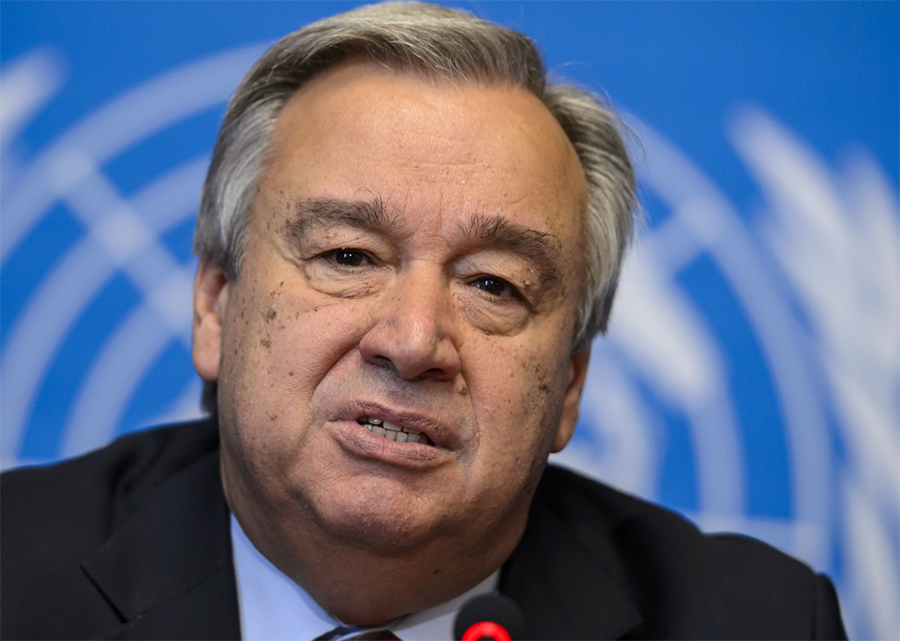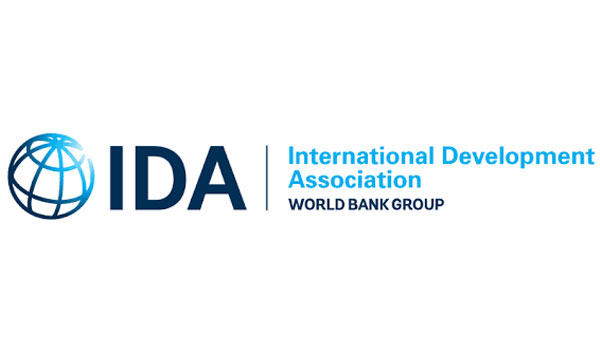
Viewpoints | Sep 14,2024
Mar 9 , 2019
By Anteneh Tesfaye
Blockchain is said to be the future, but it is already here, disrupting industries and changing how governments work, writes Anteneh Tesfaye, who is interested in technology and startups in emerging markets.
The Internet has transformed the world. One can send text, video or audio files through different channels instantly without any approval by authorities. The internet enables information to move freely but not money.
We still need some central authority or intermediary we trust to transfer values or assets from one person to another. The role of the central authority is to verify identity and record transactions independently. This is what the relatively new technology, blockchain, will change.
Blockchain is a digital, distributed transaction ledger with identical copies maintained on each network-member computer. All parties can review previous entries and record new ones. Transactions are grouped in blocks, recorded one after the other in a chain of blocks - the "blockchain".
The links between blocks and their contents are protected by cryptography, making it impossible to destroy or alter previous transactions. This means that the ledger and the transaction network can be trusted without the verification of a central authority.
Picture a spreadsheet that is duplicated thousands of times across a network of computers, then imagine that this network is designed to regularly update this spreadsheet. This is the basic concept of the blockchain.
“Blockchain is to trust as the internet is to information,” Joichi Ito, director of the MIT Media Lab, put it most accurately.
A hyped-up cryptocurrency, Bitcoin, has introduced the concept of blockchain to many. As the first cryptocurrency, it introduced us to blockchain technology, which has also brought other virtual currencies into play.
It is crucial though to know the applicability of blockchain is much more than a platform for cryptocurrencies - even though the financial industry will be one of the most likely to be disrupted by it.
Taken in that view, blockchain is not just the future, it is here already revolutionising industries and shifting paradigms in agriculture, public service and the environment. And wherever it has been applied, the technology has fueled efficiency, speed, transparency and immutability.
Blockchain’s applicability to safeguard the environment and perhaps contribute to controlling climate change can be used as a primary example of its revolutionary importance.
Social Plastic, by Plastic Bank, is a project that is turning plastic into currency by setting up collection centres in developing countries such as in Haiti, where people can deposit used plastic in exchange for currency as a tool to reduce plastic waste while alleviating poverty. They are now working on a blockchain-powered app that will allow people to exchange plastic for cryptographic tokens.
The concept of blockchain technology can be applicable in the buying and selling of energy. Today, electric energy is usually produced and sold by companies or state enterprises that control the whole supply chain. This may not be true anymore.
SunContract is a blockchain-based, peer-to-peer energy trading platform for solar and other renewables. Using this platform, homeowners can select their energy producers, and individuals will be able to engage in an exchange of electricity directly with their neighbours and the local community.
Simply, anyone can be able to produce electricity in their home or buy it directly from the people they know. In return, more power will be in the hands of individual buyers and sellers who also usually produce environmentally friendly sources of energy.
In Ethiopia Moyee Coffee plans to introduce the first blockchain-traceable coffee to bring transparency and better profit to farmers. Coffee farmers can get paid through blockchain, unique in the coffee industry. The company uses a traceability platform that focuses on the critical supply chains of coffee. Every piece of data in the coffee chain, from harvest to shipment is stored digitally in blockchain.
At the point of collection of the harvest from farmers, the platform instantly creates crypto tokens, which represents the value of the coffee. As the commodity flows through the entire supply chain, new tokens are automatically created, which increase in value as the coffee beans move through the supply chain.
When a consumer finally buys the coffee, the pack will be bundled with a digital token that can be used to trace where the tokens go to ensure the farmer receives his share of the profit. With this, a coffee drinker in Europe can pull up this data and verify exactly where their coffee was sourced from.
Blockchain has found use in the public sector as well, with governments already using this technology.
Although blockchain has only become popular in recent years, Estonia has been testing it since 2008. It has been in use in the country’s data registries for national health, judicial, legislative, security and commercial code systems since 2012, with plans to extend its use to other spheres, such as personalised medicine and cybersecurity.
It is important to know that this sensitive data is not stored in the blockchain. The technology rather works like a speed camera that detects who has violated the law, when and how.
Due to the fact that data protected by blockchain technology is covered with what has been called a “digital-defence-dust”, where every change that takes place in the data can be detected, because it leaves a trace in the pattern. This helps to protect from corruption and misuse.
Governments in Africa are also trying to figure out how they can use this technology. The Kenyan government created blockchain taskforces that will study the benefits and challenges associated with blockchain technologies. Last May, IOHK, the company behind the Cardano blockchain, a decentralised open source project, signed a memorandum of understanding with the government of Ethiopia to explore how blockchain technology could benefit the country.
In Australia, Civic Ledger, a civic-focused blockchain company, developed Water Ledger based on the blockchain platform Ethereum. The blockchain-enabled platform provides a means to verify all water trades and update state registries in real time, including the location of the trades.
These are just some of the initiatives that are being taken to apply the technology. Health care, advertising, social media, music, gaming, real estate, taxation and land management are some of the other industries whose disruption we will soon witness.
But this by no means indicates that there are no challenges. This includes regulatory and scalability issues. We are still far away from mass adoption. But the technology is here, and the future is more exciting.
PUBLISHED ON
Mar 09,2019 [ VOL
19 , NO
984]


Viewpoints | Sep 14,2024

Covid-19 | Apr 01,2020

Radar | Apr 16,2022

Life Matters | Jun 21,2025

Fortune News | Jun 01,2019

Editorial | Mar 19,2022

Radar | Dec 17,2022

Viewpoints | Jan 07,2024

Fortune News | Apr 20,2019

Viewpoints | Jun 21,2025

My Opinion | 131969 Views | Aug 14,2021

My Opinion | 128359 Views | Aug 21,2021

My Opinion | 126296 Views | Sep 10,2021

My Opinion | 123910 Views | Aug 07,2021

Dec 22 , 2024 . By TIZITA SHEWAFERAW
Charged with transforming colossal state-owned enterprises into modern and competitiv...

Aug 18 , 2024 . By AKSAH ITALO
Although predictable Yonas Zerihun's job in the ride-hailing service is not immune to...

Jul 28 , 2024 . By TIZITA SHEWAFERAW
Unhabitual, perhaps too many, Samuel Gebreyohannes, 38, used to occasionally enjoy a couple of beers at breakfast. However, he recently swit...

Jul 13 , 2024 . By AKSAH ITALO
Investors who rely on tractors, trucks, and field vehicles for commuting, transporting commodities, and f...

Jul 5 , 2025
Six years ago, Ethiopia was the darling of international liberal commentators. A year...

Jun 28 , 2025
Meseret Damtie, the assertive auditor general, has never been shy about naming names...

Jun 21 , 2025
A well-worn adage says, “Budget is not destiny, but it is direction.” Examining t...

Jun 14 , 2025
Yet again, the Horn of Africa is bracing for trouble. A region already frayed by wars...

Jul 6 , 2025 . By BEZAWIT HULUAGER
The federal legislature gave Prime Minister Abiy Ahmed (PhD) what he wanted: a 1.9 tr...

Jul 6 , 2025 . By YITBAREK GETACHEW
In a city rising skyward at breakneck speed, a reckoning has arrived. Authorities in...

Jul 6 , 2025 . By NAHOM AYELE
A landmark directive from the Ministry of Finance signals a paradigm shift in the cou...

Jul 6 , 2025 . By NAHOM AYELE
Awash Bank has announced plans to establish a dedicated investment banking subsidiary...